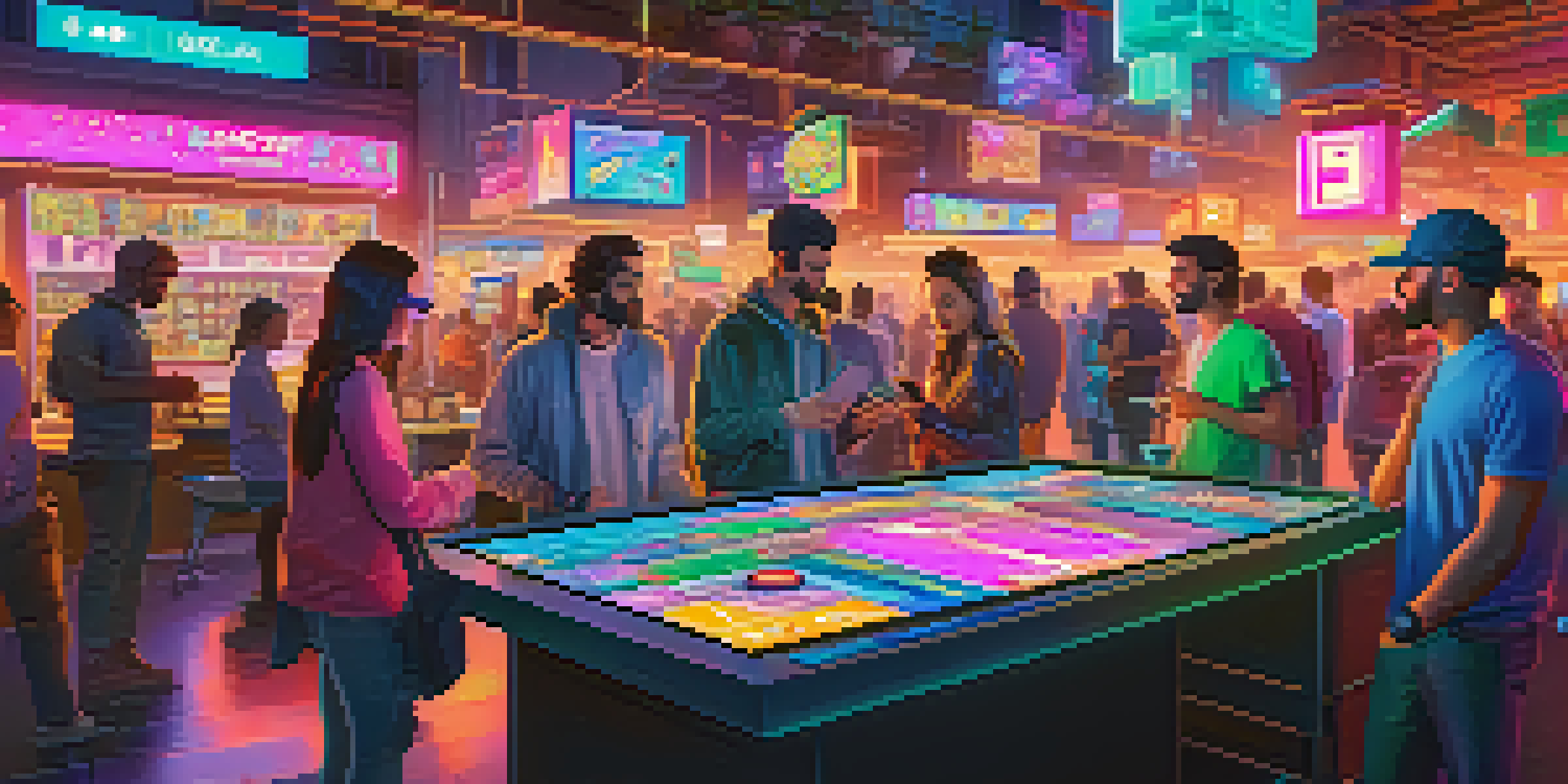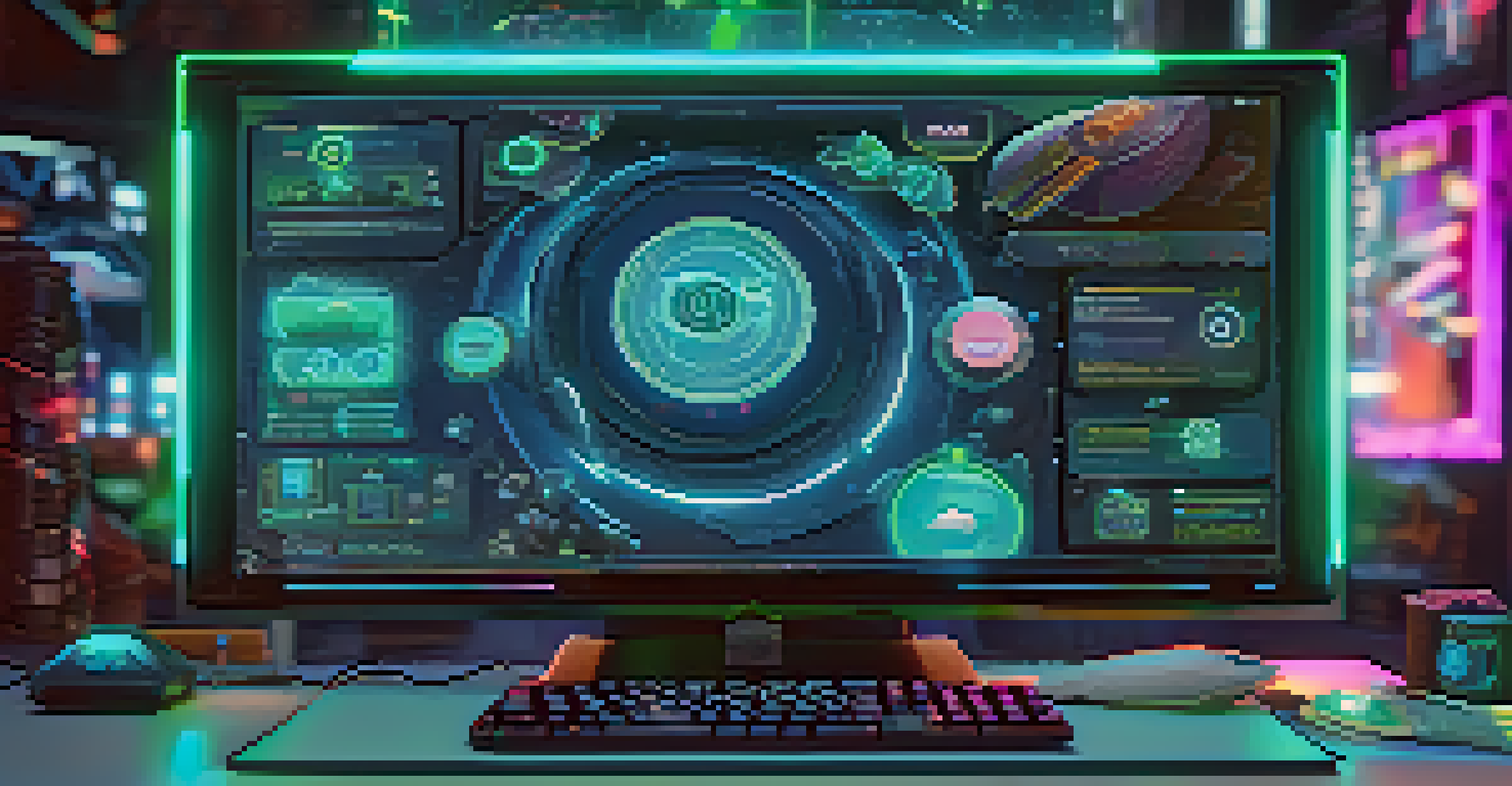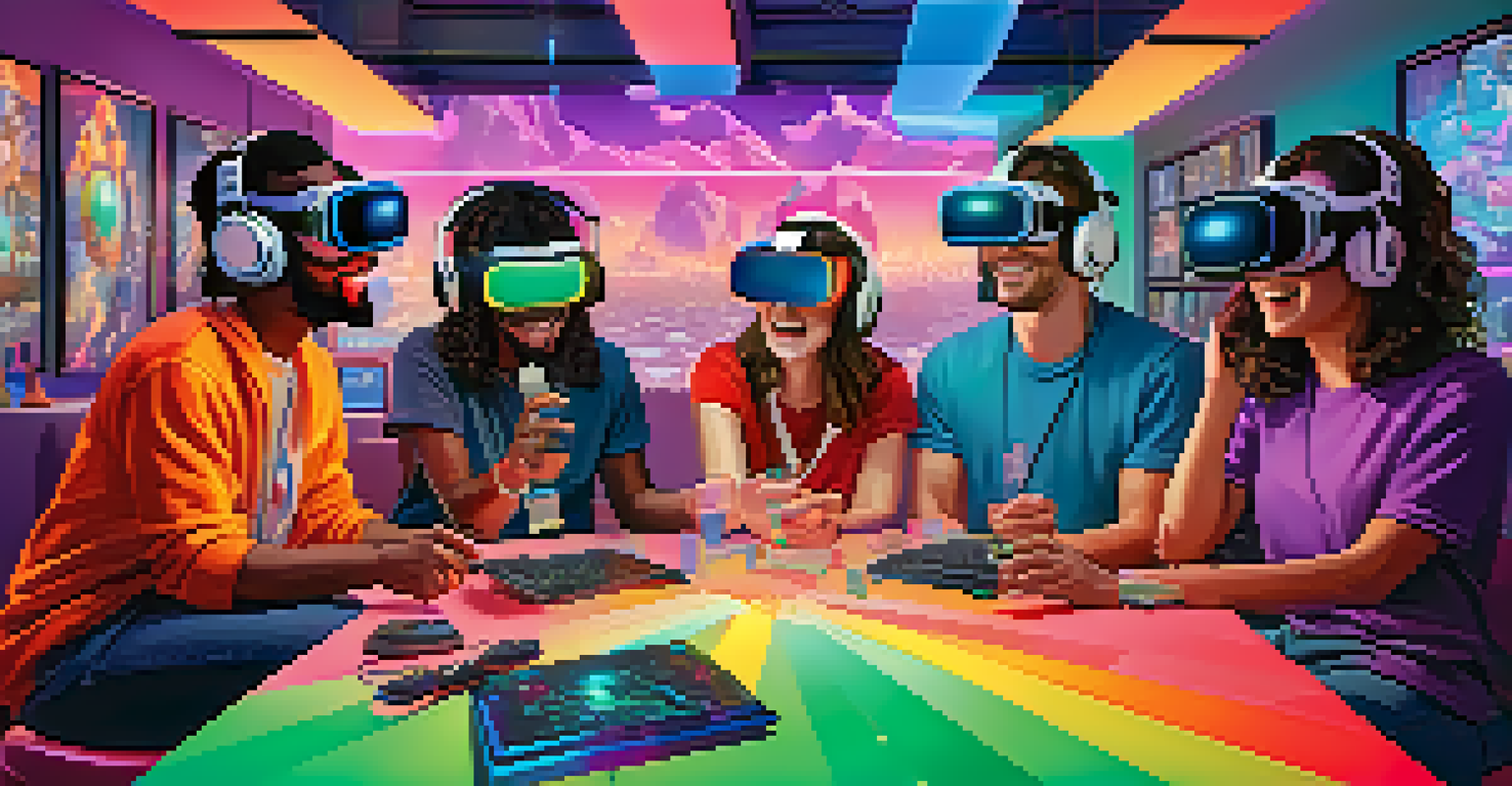Decentralized Gaming: The Future of Player-Centric Models

Understanding Decentralized Gaming: A Brief Overview
Decentralized gaming refers to a model where players have greater control and ownership over their in-game assets. Unlike traditional gaming, where developers maintain control, this approach empowers players through blockchain technology. Essentially, it allows players to truly own their items, characters, and achievements, making gaming a more personal experience.
In a decentralized gaming world, players no longer merely play; they become stakeholders in their own experiences.
A prime example of this concept is the rise of NFTs (non-fungible tokens) in gaming. These unique digital assets enable players to buy, sell, and trade their in-game items securely and transparently. This shift not only enhances player engagement but also creates an economy where players can benefit financially from their time spent in games.
By decentralizing the gaming experience, developers are also encouraging innovation. They can create ecosystems where players contribute to game development, fostering a sense of community and collaboration. This player-centric model signifies a shift in how we view gaming, making it not just a pastime, but a potential source of income.
The Benefits of Player Ownership in Gaming
One of the most significant advantages of decentralized gaming is player ownership. In traditional models, players are often left with little more than temporary access to their purchases. With decentralized gaming, players can buy, sell, or trade their assets freely, creating a sense of true ownership that enhances satisfaction and loyalty.

Imagine playing a game for years, leveling up your character and collecting rare items, only to realize you have no real claim to them. Decentralized gaming changes that narrative. Players can now hold onto their achievements or even monetize them, transforming their passion into a potential income stream.
Player Ownership Transforms Gaming
Decentralized gaming empowers players with true ownership of in-game assets, enhancing satisfaction and loyalty.
This ownership model also promotes trust between players and developers. When players feel secure in their investments, they are more likely to engage with the game for longer. This shift can lead to stronger communities and a more vibrant gaming ecosystem, where players feel valued and respected.
Decentralized Gaming: A New Economic Model
The economic implications of decentralized gaming are vast and intriguing. By utilizing blockchain technology, these games can create unique marketplaces where players can trade assets directly with one another. This not only empowers players but also allows for a more dynamic and responsive economy.
Blockchain technology allows gamers to truly own their assets, transforming the way we interact with virtual worlds.
For instance, in a decentralized game, a player may find a rare item that others are willing to pay a premium for. This creates an environment where prices are determined by demand and supply, akin to a free market. Players can engage in trading, crafting, and even investing in virtual assets, leading to a diversified economic experience.
Moreover, this model encourages collaboration between players. Instead of competing against one another solely, players can work together to create value within the game, whether through crafting unique items or forming guilds. This collaborative spirit can bring about a richer gameplay experience.
Challenges Facing Decentralized Gaming Models
While the benefits of decentralized gaming are compelling, there are challenges that must be addressed. One major concern is the complexity of blockchain technology, which can be daunting for new players. Simplifying the onboarding process is crucial to attract a wider audience.
Additionally, the volatility associated with cryptocurrencies can deter players from fully committing to decentralized games. Prices for in-game assets can fluctuate wildly, creating uncertainty for those looking to invest their time and money. Developers must find ways to stabilize these economies while maintaining their decentralized nature.
Economic Opportunities Emerge
The decentralized model creates dynamic marketplaces for trading assets, allowing players to engage in a free market economy.
Lastly, security remains a pressing issue. As with any online platform, decentralized gaming is susceptible to hacks and scams. Ensuring robust security measures will be essential to build trust and encourage player participation in these new models.
Community-Driven Development: A Key Feature
One of the most exciting aspects of decentralized gaming is the potential for community-driven development. In this model, players can actively contribute to shaping the game’s future, suggesting features, and even voting on major updates. This creates a sense of shared ownership and investment in the game’s success.
Take, for example, games that allow players to propose new characters or storylines. The community can discuss and refine these ideas, creating a more engaged player base. This collaborative approach not only enriches the gaming experience but also helps developers deliver content that truly resonates with their audience.
As players become more involved in the development process, they are likely to feel more connected to the game. This emotional investment can lead to increased loyalty and a thriving community that supports the game long-term.
The Role of NFTs in Decentralized Gaming
NFTs have emerged as a cornerstone of decentralized gaming, providing a way for players to own and trade unique digital assets. Each NFT is distinct and cannot be replicated, which adds value to in-game items. This uniqueness drives demand and creates a vibrant marketplace for players.
Consider a scenario where a player acquires a limited edition skin for their character. This NFT not only represents ownership but can also appreciate in value over time. Players can choose to hold onto it, enjoy their unique asset, or sell it for profit—empowering them in ways traditional gaming never could.
Community Shapes Game Development
Players can contribute to game development through feedback and voting, fostering a sense of shared ownership and investment.
Moreover, NFTs can enhance gameplay by enabling players to unlock special features or experiences. This adds an extra layer of excitement and motivation, encouraging players to explore all that the game has to offer.
Looking Ahead: The Future of Decentralized Gaming
As we look to the future, decentralized gaming is poised to revolutionize how we think about play and ownership. With advancements in technology, we can expect more immersive experiences that seamlessly integrate blockchain features. This evolution could lead to games that are not only entertaining but also financially rewarding for players.
Additionally, the growing acceptance of cryptocurrencies in everyday life will likely facilitate the mainstream adoption of decentralized gaming. As more players become comfortable with digital currencies, they will be more willing to explore these new gaming models.

Ultimately, the future of decentralized gaming promises a more player-centric approach, where gamers are at the heart of decision-making processes. This shift could redefine the gaming landscape, making it an exciting time to be both a player and a developer.